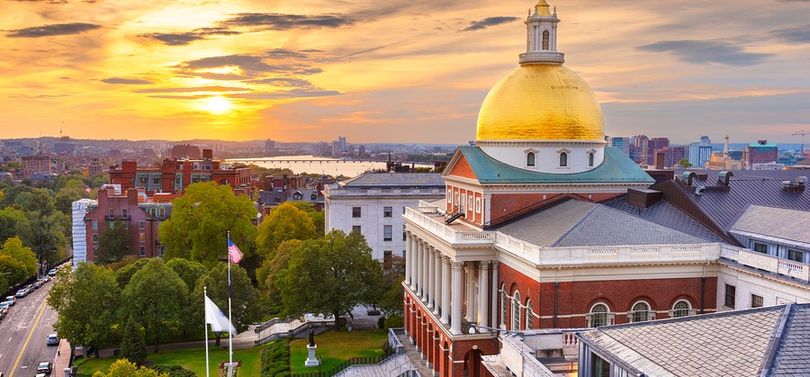
To address the current status of the coronavirus outbreak, both the federal and Massachusetts state government are taking aggressive action to control the spread. Below, we share the political responses for the week of March 9th and March 16, 2020.
LAST WEEK
President Trump officially declared a national emergency over the coronavirus outbreak to free up $50 billion in federal resources to combat the virus and outlined the administration’s efforts to enhance testing: a new federal coordinator to oversee testing, funding for two companies developing rapid tests, and a hotline for labs to call to get help finding needed supplies. He stated the national emergency will give the administration “maximum flexibility” to respond to the crisis, alluding to the potential for drive-thru testing.
Additionally, the Centers for Medicare & Medicaid Services (CMS) is giving Medicare Advantage and Medicare Part D plans flexibility for: waiving cost-sharing for COVID-19 tests, treatments in doctor’s offices or emergency rooms, and services delivered through telehealth; removing prior authorization requirements; waiving prescription refill limits; relaxing restrictions on home or mail delivery of prescription drugs; and expanding access to certain telehealth services.
In Massachusetts, the Division of Insurance issued a bulletin addressing COVID-19 testing and treatment. The bulletin stated that the state expects insurers to: forego cost-sharing for in-network, and out-of-network if services unavailable, medically necessary COVID-19 testing, counseling and vaccination; establish dedicated hotlines to answer questions about coronavirus and communicate covered services to beneficiaries; promote telehealth options for COVID-19 screening, evaluation, diagnosis, and/or treatment; relax prior approval requirements for COVID-19 testing and treatment for individuals deemed at risk by CDC and DPH; and relax out-of-network requirements when access to urgent COVID-19 testing or treatment is unavailable from in-network providers.
On March 10, Governor Charlie Baker declared a state of emergency in Massachusetts. His executive order allows the state to take additional steps to prepare for, respond to, and mitigate the spread of COVID-19 to protect the health and welfare of the people of the Commonwealth; and expedite the of federal and interstate resources to protect persons from the impacts of the spread of COVID-19.
MassBio is monitoring the coronavirus (COVID-19) situation closely for the safety of both our staff and the visitors to our regular meetings and events. Out of concern for the health of the entire MassBio community, all MassBio events are either cancelled or postponed through April 1, 2020. Our updated policy can be found online, here.
THIS WEEK
On Sunday, Governor Baker issued additional orders that included more aggressive measures to address the coronavirus outbreak in Massachusetts. Beginning on Tuesday, 3/17 all public and private schools across Massachusetts will close for three weeks, all restaurants are limited to only takeout and delivery, and public gatherings cannot surpass 25 people. He also mandated that Massachusetts insurers cover all medically necessary telehealth services, to help keep patients with acute illnesses out of the hospital. By keeping more people at home, they can prevent exposure and further spread of the virus, and help “flatten the curve” of outbreak in the state.
On Monday, the Governor filed emergency legislation, a package of three bills (Senate Bill 2598, House Bill 4572, and House Bill 4571), to allow workers to begin immediately collecting unemployment benefits, and to allow municipalities to extend existing budgets on a month-to-month basis.
This week Massachusetts legislators are expected to approve a $15 million aid package to assist the state’s response to the ongoing outbreak of the coronavirus and the potentially fatal respiratory illness it causes. As drafted, the supplemental budget bill doesn’t dictate specifically how the money is to be used, but Governor Baker anticipates a large portion of the money will be directed into communities for first responders and local boards of health.
Additionally, the Legislature is setting up working groups comprised of representatives with emergency response, public health, and nursing and medical backgrounds to provide leadership during the coronavirus crisis. These working groups are taking shape in the State House as legislators are seeking ways to take up bills when gatherings of more than 25 people are banned.
To learn more about the political environment in Massachusetts and the United States, read our weekly Legislative Updates.